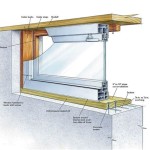The Essential Aspects of Average Cost of a Basement
Basements can add significant value to your home, providing extra living space, storage, and even rental income. However, understanding the average cost of a basement is crucial before embarking on this project. This guide will delve into the key factors that determine the cost of a basement, helping you make informed decisions and avoid any unexpected expenses.
Size and Depth
The size and depth of your basement will have a significant impact on the overall cost. A larger basement will require more materials, labor, and excavation work, while a deeper basement will need additional structural support and waterproofing measures. Determine the desired size and depth based on your needs and budget.
Materials and Finishes
The materials and finishes you choose for your basement will also influence the cost. Poured concrete is the most common and affordable option for basement walls, but it can be upgraded with block or stone for a more finished look. Drywall, paneling, or tile can be used for the ceiling and walls, while carpeting, tile, or hardwood flooring is common for the floor.
Excavation and Site Preparation
Excavation is a significant expense in basement construction. The cost will vary depending on the size of the basement, soil conditions, and the need for excavation permits. Site preparation may also include grading, drainage improvements, and any necessary retaining walls.
Labor Costs
Labor costs will account for a substantial portion of the basement project. Hiring a licensed contractor is recommended for both safety and quality. The contractor will oversee the project, manage subcontractors, and ensure that all work meets building codes. The cost of labor will vary based on the complexity of the project and the contractor's experience.
Mechanical Systems
Mechanical systems are essential for a functional basement. These include heating, cooling, plumbing, and electrical systems. The cost of these systems will depend on the size of the basement, the specific systems chosen, and the efficiency of the equipment.
Additional Features
If you want to enhance the functionality and value of your basement, consider adding additional features such as a bathroom, kitchenette, or home theater. These features can significantly increase the cost but may also add to the overall resale value of the home.
Other Considerations
Beyond these essential aspects, other factors that may influence the average cost of a basement include:
It's important to consult with a licensed contractor and obtain multiple quotes to get an accurate estimate for your specific project.
Conclusion
Understanding the average cost of a basement is crucial for planning a successful project. By considering the size, materials, excavation, labor costs, mechanical systems, additional features, and other factors, you can make informed decisions and budget accordingly. Remember that the cost will vary depending on your specific requirements and local conditions. By approaching this project with careful planning and professional guidance, you can transform your basement into a valuable and functional addition to your home.

Cost To Finish A Basement In 2024 Forbes Home

How Much Does It Cost To Finish A Basement 2024 Data Bob Vila

What S The Average Cost To Finish A Basement

How Much Does It Cost To Build A Basement In 2024 Checkatrade

The Average Cost To Finish A Basement Smartasset

How Much Does It Cost To Finish A Basement In Utah Finishing

The Average Cost To Finish A Basement Smartasset

How Much Does It Cost To Finish A Basement In 2024

How Much Does It Cost To Build A Basement In 2024 Checkatrade

How Much Does It Cost To Finish A Basement 2024
Related Posts







